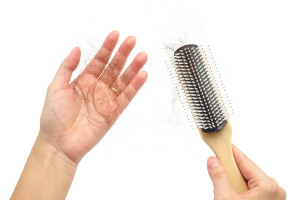Postpartum Body Changes
 After giving birth, your body will experience some changes, including soreness and pain. While most changes are minor inconveniences, a few things could leave you questioning your body’s health. It’s important to remember: each person is different and not all bodies will experience the same issues. Monitor your own body and address unusual changes. Drinking plenty of water, eating fruits, veggies and whole grains, and getting enough sleep can help combat many issues. Remember to take care of your own body by giving yourself time to recover and heal.
After giving birth, your body will experience some changes, including soreness and pain. While most changes are minor inconveniences, a few things could leave you questioning your body’s health. It’s important to remember: each person is different and not all bodies will experience the same issues. Monitor your own body and address unusual changes. Drinking plenty of water, eating fruits, veggies and whole grains, and getting enough sleep can help combat many issues. Remember to take care of your own body by giving yourself time to recover and heal.
The following list explains some of the most common postpartum body changes:
- Perineum Soreness: Expect to encounter some soreness in the area between your vagina and rectum. This area can stretch or even tear during pregnancy, causing irritation. To manage perineum soreness: apply a cold pack to the area, sit on a pillow, soak in a bath or, if the pain is more severe, ask your doctor for medicine to ease the pain.
- Vaginal Discharge: After giving birth, you may experience an increase of vaginal discharge or fluid from your vagina. Typically a mix of blood and tissue from the uterus, vaginal discharge is usually heavier and brighter red immediately following pregnancy. However, over the course of a few weeks, it typically will become lighter in color and flow. To manage discharge, use panty liners or sanitary pads, while experiencing symptoms. Avoid tampons.
- Breast Soreness: Your body will prepare for breastfeeding and you will likely experience breast engorgement (large, heavy breasts that are tender to the touch). In addition to breast engorgement, many new moms will also experience sore and cracked nipples. To manage breast engorgement, breastfeed the baby as much as possible. To manage nipple soreness, ask your physician for recommendations on creams and at-home treatment.
- Afterbirth Pain: As your uterus returns to its regular size, you may experience pain known as uterus contractions. Pain typically only lasts a few days after you give birth. To manage soreness, ask your doctor for an over-the-counter pain relief recommendation.
- Bladder Incontinence: Due to the pressure on your pelvic muscles during pregnancy, your bladder may be temporarily weakened. Incontinence symptoms may include feeling pain or a burning sensation when urinating, feeling of a full bladder but not being able to urinate, or feeling a frequent/sudden urge to urinate. To manage incontinence, use sanitary pads, drink lots of water, and practice Kegels.
- Excessive Sweat: Many new moms will sweat more after giving birth, especially at night. It’s caused by hormones working to get rid of access fluids used to support the pregnancy. Postpartum sweating typically subsides in a couple weeks, possibly even in a few days. To mange sweating, wear loose/light pajamas, cover your sheets with a towel, and sleep in a cool room. Additionally, drinking plenty of water will help prevent your body from becoming dehydrated.
- Hair Loss: During pregnancy, your hair may be fuller and thicker, but after giving birth, many new moms will see thinner hair or hair loss. Typically lasting three to four months, hair loss should subside eventually. To manage hair loss, eat plenty of fruits and vegetables and stay hydrated.
- Hemorrhoids: During and after pregnancy, many woman will experience painful swollen veins around the anus. To manage hemorrhoids, drink plenty of water and soak in warm baths to relieve symptoms.
If any of the above symptoms seem extreme, call your doctor. He or she can discuss what is normal or what may need more attention.
More